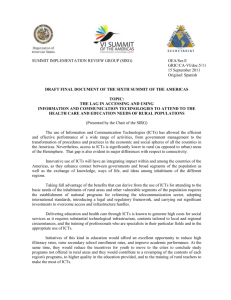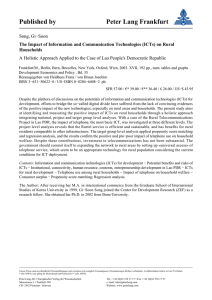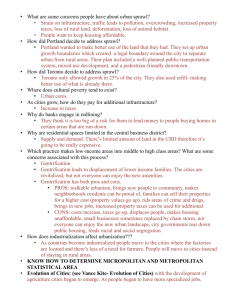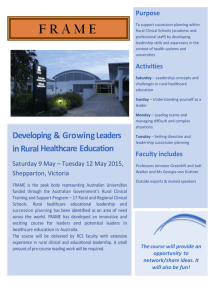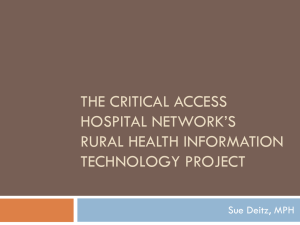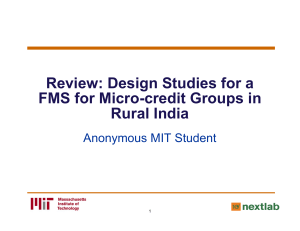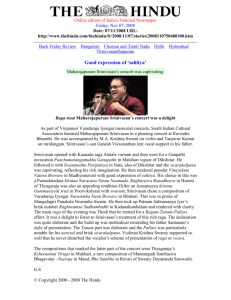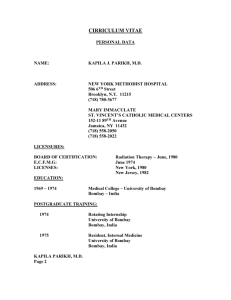The panel will bring together scholars of information with training in
advertisement
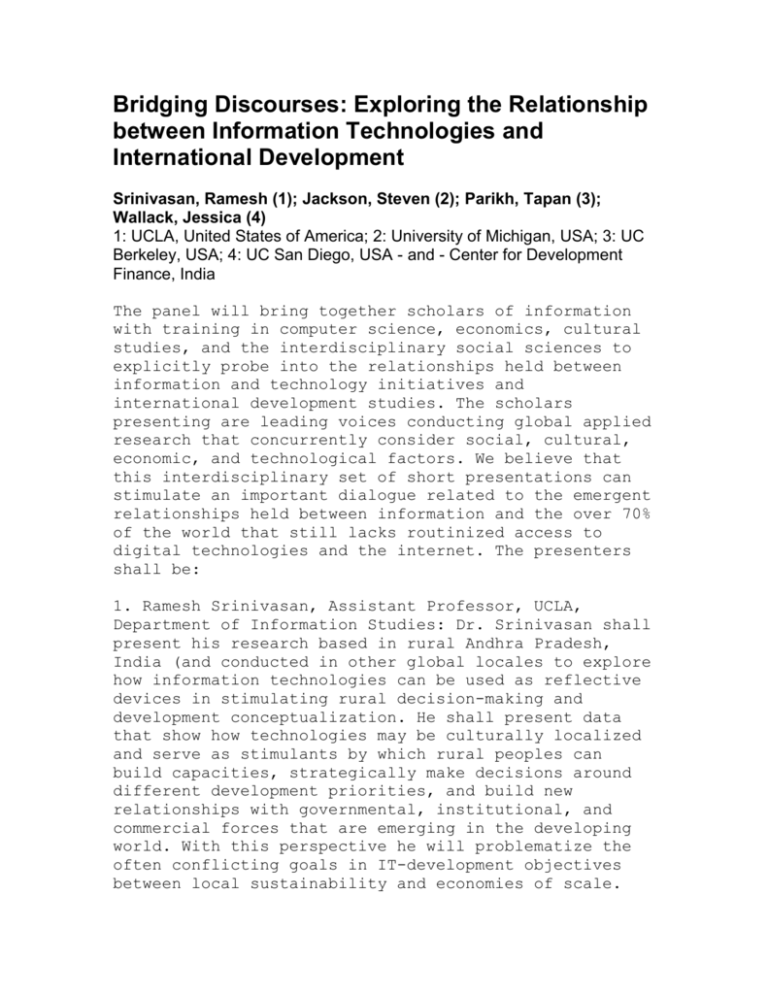
Bridging Discourses: Exploring the Relationship between Information Technologies and International Development Srinivasan, Ramesh (1); Jackson, Steven (2); Parikh, Tapan (3); Wallack, Jessica (4) 1: UCLA, United States of America; 2: University of Michigan, USA; 3: UC Berkeley, USA; 4: UC San Diego, USA - and - Center for Development Finance, India The panel will bring together scholars of information with training in computer science, economics, cultural studies, and the interdisciplinary social sciences to explicitly probe into the relationships held between information and technology initiatives and international development studies. The scholars presenting are leading voices conducting global applied research that concurrently consider social, cultural, economic, and technological factors. We believe that this interdisciplinary set of short presentations can stimulate an important dialogue related to the emergent relationships held between information and the over 70% of the world that still lacks routinized access to digital technologies and the internet. The presenters shall be: 1. Ramesh Srinivasan, Assistant Professor, UCLA, Department of Information Studies: Dr. Srinivasan shall present his research based in rural Andhra Pradesh, India (and conducted in other global locales to explore how information technologies can be used as reflective devices in stimulating rural decision-making and development conceptualization. He shall present data that show how technologies may be culturally localized and serve as stimulants by which rural peoples can build capacities, strategically make decisions around different development priorities, and build new relationships with governmental, institutional, and commercial forces that are emerging in the developing world. With this perspective he will problematize the often conflicting goals in IT-development objectives between local sustainability and economies of scale. 2. Tapan Parikh, Assistant Professor, UC Berkeley ISchool: As a computer scientist who has designed a number of mobile technologies in the developing world, Parikh has found that designing and evaluating technologies for the developing world presents unique contextual challenges – including limited time and resources in the field, lack of infrastructure and cultural differences that lead to misunderstandings and inefficiency. In this panel, I would like to discuss my recommendations for establishing relationships with local partners. Establishing Rapport Establishing rapport is the first essential step for the success of a design project. Local partners understand the context and can achieve results more effectively then outsiders. Establishing rapport requires the design team to show they are committed and capable; and providing partners the opportunity to do the same. “Show you are tough.” We traveled regularly on the chicken bus from Guatemala City to Barillas and back (over 14 hours each way). We have walked in the mud for hours, slept on wooden boards with farmers in insectinfested sub-tropical forests. This establishes the precedent that we are working on equal terms. “Show you are capable.” We arrive promptly at the office every day, and show that we are committed. We are careful to ask relevant questions, and stay focused on the task. We refer to experience in other countries, which arouses confidence and interest. “Clearly establish roles.” It is important to be realistic about what you can provide, what you expect local partners to provide, and what is the potential for benefit. Being open and honest is the best way to avoid unrealized expectations. Overcoming Evaluation Challenges It is difficult to evaluate computing systems in the developing world. Obtaining useful and statistically relevant data requires patience and planning. “At first, be patient and flexible.” Due to rigorous travel, the design process should coincide with scheduled activities wherever possible. Most of our initial studies are organized with field visits, which leaves limited time and attention for design work. “Conduct experiments that are clearly relevant for participants.” The best way for participants to sincerely participate is to convince them that their efforts will have long-term benefits. This focuses the research team on those questions that have the most immediate and direct impact. “Strive for a balance between control and enthusiasm.” It is difficult to maintain a sterile testing environment - there are dozens of people around, and users get distracted. While this hinders the design process, natural interest and excitement also helps build rapport and user involvement. “Take compliments with a grain of salt.” People from many cultures are polite and will not plainly give a negative answer. Some participants are also keenly interested in acquiring new technology (for example, fancy mobile phones). “Use accumulated social capital to achieve better testing conditions.” In India, once we established a long-term working relationship, we were able to conduct experiments under controlled conditions [1]. We are hoping for the same opportunities with future partners. Discussion With success comes responsibility. We have been afforded an opportunity to work with local communities in the expectation of mutual benefit. Carrying out projects to a sustainable hand-off point is the next challenge. Without local adoption and ownership of systems, the end goal is still some distance away. 3. Jessica Wallack, Assistant Professor, UC San Diego Department of International Relations and Pacific Studies (IRPS), and Center for Development Finance (Chennai, India): Revealing Freedoms: ICTs, Market Infrastructures, and User Communities The quest to expand human "freedoms" has become a central focus of development policy and research over the past decade. Amartya Sen's 1999 Development as Freedom catalyzed an already emerging consensus that development was as much as about providing choices and opportunities as it was about increasing incomes or wealth. Many development-oriented proposals focus on creating choices and opportunities, but ICTs hold great potential for contributing to development by revealing freedoms. Ebay, Craigslist, Guru.com, and other webbased trading systems have created entirely new markets for goods and services – and new opportunities for buyers and sellers - simply by creating a platform for existing demand and supply to be articulated more efficiently across social networks, place, and time. The ICTs themselves cannot reveal choices and opportunities, however: the systems must engage users to be effective. How? How can designers get people to use the infrastructure by making sincere offers or placing honest orders? How can we encourage them trust the offers/orders that are coming from the system itself? How can we catalogue the choices and opportunities so that users can easily find the relevant ones? The search engines and trust-building features like Paypal's escrow accounts, Ebay's user ratings, and Craigslist's user "flagging" of inappropriate postings were critical design features. This paper will analyze analogous challenges and solutions for ICT market infrastructures designed to reveal choices and opportunities for low-income, remote, rural, emerging technology users. The challenges are in part technical - "technology" is more likely to be a cell phone with limited data capabilities and a basic user interface than a computer with high speed internet – but also social. Technology is a more recent introduction among these communities. Existing transactions may have additional meaning than just the economic exchange, creating resistance to any disintermediation of the face to face exchanges that goes along with increasing the number of transactions. It will discuss preliminary lessons on solutions drawn from a survey of ICT market platforms in developing countries, as well as the author's experience with an ongoing effort to develop and deploy a cell phone based market information structure in rural Tamil Nadu, India. The paper will also outline that project's methodology for a more systematic assessment of what works. 4. Steven Jackson, Assistant Professor, University of Michigan, I-School: This paper will present early findings from the African Knowledge Infrastructures project, which seeks to broaden and reconceptualize IT for development practice in an African context. The paper will explore failings and pathologies widespread within IT for development efforts to date, and suggest ways in which new thinking and practice around the categories of knowledge and infrastructure might call into vision new styles and possibilities for developmental practice.
